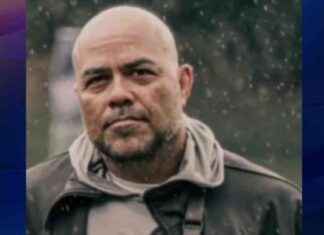Revelations about sexual abuse of minors in the Catholic Church follow one another in various countries, in a trickle on a scale unthinkable two decades ago. In Spain this May, to the request for forgiveness from the bishops when presenting their instruction so that dioceses and congregations act accordingly, are added the cases denounced by former students of the Casp Jesuit school in Barcelona.
When in 2008, fifteen years ago, Benedict XVI became the first Pope in history to ask for forgiveness and meet with victims of sexual abuse perpetrated by priests and religious, the public elaboration of these ignominious events was in the offing. Joseph Ratzinger held these meetings during two apostolic trips to the United States and Australia. The journalists who traveled to Sydney to cover the visit were already considering why cases of abuse did not appear in Europe, especially in the south, in countries with a historical Catholic tradition such as Spain, Italy or France.
Although logic suggested that the type of abuse and the cover-up system had a structural nature, so that in no country could the Catholic Church be free from guilt, the phenomenon seemed to not exist beyond English-speaking countries where Catholicism did not it was not and had not been the majority Christian creed. In fact, at that time many prelates – knowing or not of concrete realities – maintained that the complaints responded to setups by lawyers, and that they were instigated by the media with anti-Catholic prejudices typical of Anglo-Saxon societies with a Protestant majority.
In the United States there had been a few complaints and convictions in the 1980s and 1990s, and it was in a US archdiocese, Boston, where in 2002 the first major scandal with international resonance on sexual assault on minors and protection of perpetrators broke out. which led to the resignation of its archbishop, Cardinal Bernard Law. After Ratzinger’s meetings with victims in Washington and Sydney in 2008, new revelations were produced in Europe and Latin America.
Willingly or because the reputational damage is already impossible for them to sustain, episcopal conferences and religious orders are assuming responsibilities in punishing the guilty and in reparation to the victims, and in the obligatory reporting of crimes to the public. ordinary justice. There is an express order from Pope Francis to put an end to this scourge, but also bishops and general superiors throughout the world are taking note of the extremely high cost of the culture of silence that has been practiced for a long time. This attitude acted as a shield for the aggressors, who were secretly transferred to other parishes, schools or dioceses, while the victims were ignored or separated, and summoned to silence.
In this sense, the investigations by church initiative in Germany, France, Italy, Portugal and other European countries are good news for justice towards the victims and for the protection of minors and vulnerable adults.
To our shame, the Catholic Church in Spain has been one of the last Europeans to investigate and address the matter firmly. Until the last minute, the bishops have alleged that sexual abuse occurs in many social and professional settings, and also within families. Of course, that is true. However, when sexual abuse occurs within the Church, an institution with religious and moral values, there is an extra seriousness in all abject behavior, so accountability becomes even more urgent. We hope that the victims receive the compensation they deserve.








